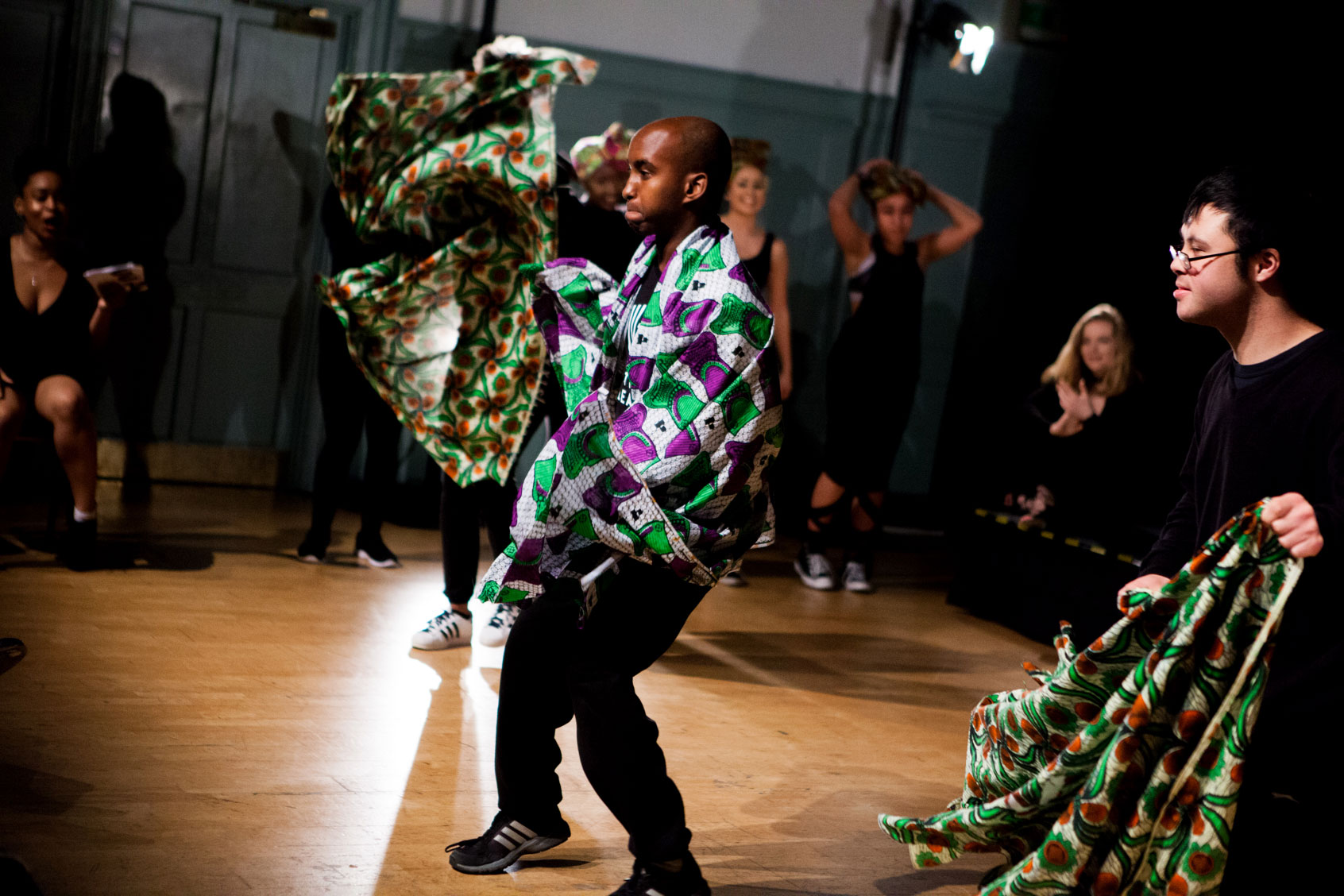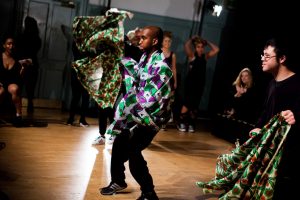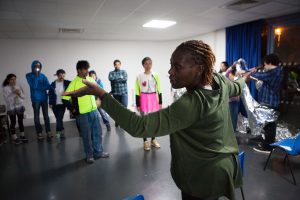Drama and physical movement activities can elicit some of the most unexpected and profound outcomes when working with young people with SEN. It is important to allow young people to explore abilities beyond their prescribed statement of needs and outside of their comfort zones. Drama is an art form that allows individuals and groups to safely test boundaries, make mistakes and learn about themselves. It can be a powerful method to address emotive and personal issues indirectly, such as bullying and family life, meaning young people can communicate their thoughts and feelings in a way that direct questioning seldom provokes.
Drama games are a dynamic tool for setting the tone, relaxing the group and creating familiarity if there are new members. Even those who may seem initially introverted can relish the opportunity to showcase new skills and flourish behind the mask of performance. The potential to incorporate imagination, improvisation and fun allows shy and introverted young people a safe space to be loud and extroverted. This can improve relationships with peers who will have seen them demonstrate capabilities and personality beyond expected social norms and constraints.
Challenges for facilitators include ensuring all students are included and can engage with the activities focus. For example requesting a group to become animals involves making movements and sounds that can be mirrored between staff and students. They will need constant awareness of every member’s comfort and engagement and be able to accommodate and change the direction if necessary. This requires adaptive planning and an ability to think fast if an activity is not working often changing an entire session plan dependent on the ever-changing mood and dynamics of the students.
Assistive technology can aid with delivery of certain activities creating leadership opportunities for students whilst ensuring the theme and aims are crystal clear. For example the use of a computer, projector, speakers and selection software can display a picture of an animal and play its sound, giving clear tangible instruction to the group of what animal they should be mimicking. Via an input device individual students have autonomy of this process choosing what animal, how long people will behave as the animal, and when to change.
When working with a wide spectrum of needs drama is fantastic for mixed ability groups, stimulating fascinating insights into how young people can support and view their peers within the context of the workshop. For example asking verbal students to become voices for non-verbal students or ambulant students supporting wheelchair users. Involving those with higher needs into a drama workshop is always possible and an experiential opportunity for PMLD students. A proportion of young people will possibly be sedentary and activities that require them to be physical and animated through performance will provide an alternative form of exercise.
It is often the role of the facilitator to lead by example when introducing a workshop yet they need a heightened sense of awareness that some young people will mirror the demonstrated activity without adding any independent thought. This may need coaxing from individuals and in some cases may take time before this kind of creativity is sparked unprompted.
Performance is often the culmination of weeks of rehearsals and the rewards of an audience reacting positively will reap the same personal rewards as it would for anybody taking part in a public sharing. Young people with disabilities rarely get the chance to perform in the same settings as their non-disabled peers and alongside being a powerful progression experience individually it is paramount in attitudinal shifts towards removing the stigmas of disability for audiences. However, working with disabled young people should not always be focussed towards performance; they will gain far more from the experiential process than the undue pressure of repetitive rehearsals.
C Mollet, Inclusive Technology Officer at Wac Arts
“Life took such a tumble after my son was diagnosed with Autism at 5. My son has been able to find a way to express himself through the best drama and dance and to process it all so that before a performance with Vanessa Redgrave, he said, ‘You know what, I can do it!”
Judith Kenyon, Parent of Wac Arts Participant.



